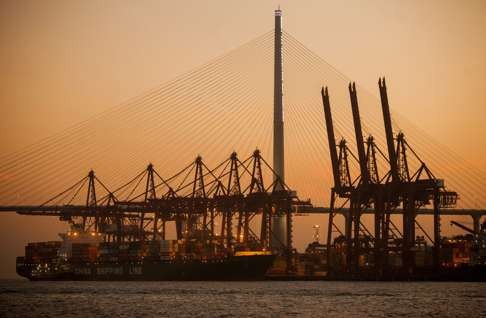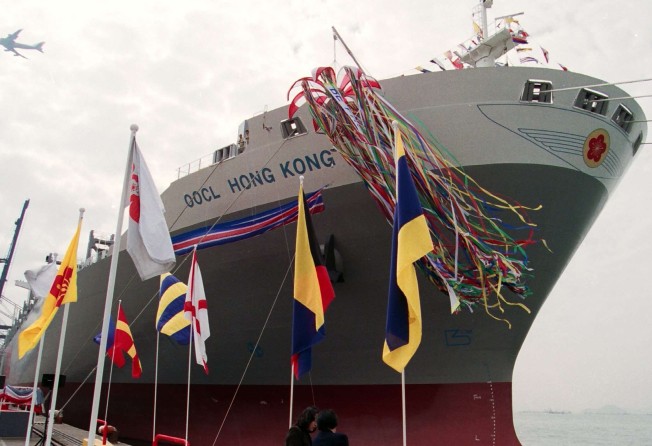
Shipping giant OOIL delivers interim US$56m loss, against US$239m profit last time
Chairman Tung Chee Chen says falling consumer demand and investment meant cargo volume growth ‘has been uninspiring’

Shipping giant Orient Overseas International has announced a slump in first-half profit, which it blamed on global weak economic growth and sluggish investment sentiment.
OOIL, owned by the family of former chief executive Tung Chee-hwa, recorded a loss of US$56.66 million in six months ended June 2016, compared to a profit of US$238.63 million in the same period last year.
The interim loss per share was 9.1 US cents, compared with interim earnings per share of 38.1 US cents for the first half of 2015.
“Weak economic growth in many key economies has constrained consumer demand, and
global uncertainty seems to have given rise to some level of slowdown in corporate and
government investment,” the company’s chairman Tung Chee Chen said in the result statement.
“Consumer demand and investment are the key drivers of demand in our industry, and in this context it is no great surprise that cargo volume growth has been uninspiring.”
Tung said the recent UK referendum result might also lead to further delays in investment decisions in the short term, at least in Europe, especially if negotiations between the UK and EU on
their future trading relationship prove to be protracted.

And Tung said, looking ahead, the second half of 2016 would remain challenging and difficult.
“The industry continues to face a supply and demand imbalance,” Tung added.
“While the orderbook as a percentage of existing fleet is anticipated to drop to 6.7 per cent and 5.5 per cent respectively in 2017 and 2018, the challenge for the next half decade is on the demand side.”
Jiang Ming, an analyst from Essence Securities said: “I cannot see any noticeable recovery sign for the shipping industry in the coming one to two years because the global economy will remain weak.”
“The unfavourable imbalance of supply and demand cannot be improved near term,” said Jiang.
“It is very difficult to see any big improvement for the industry.”